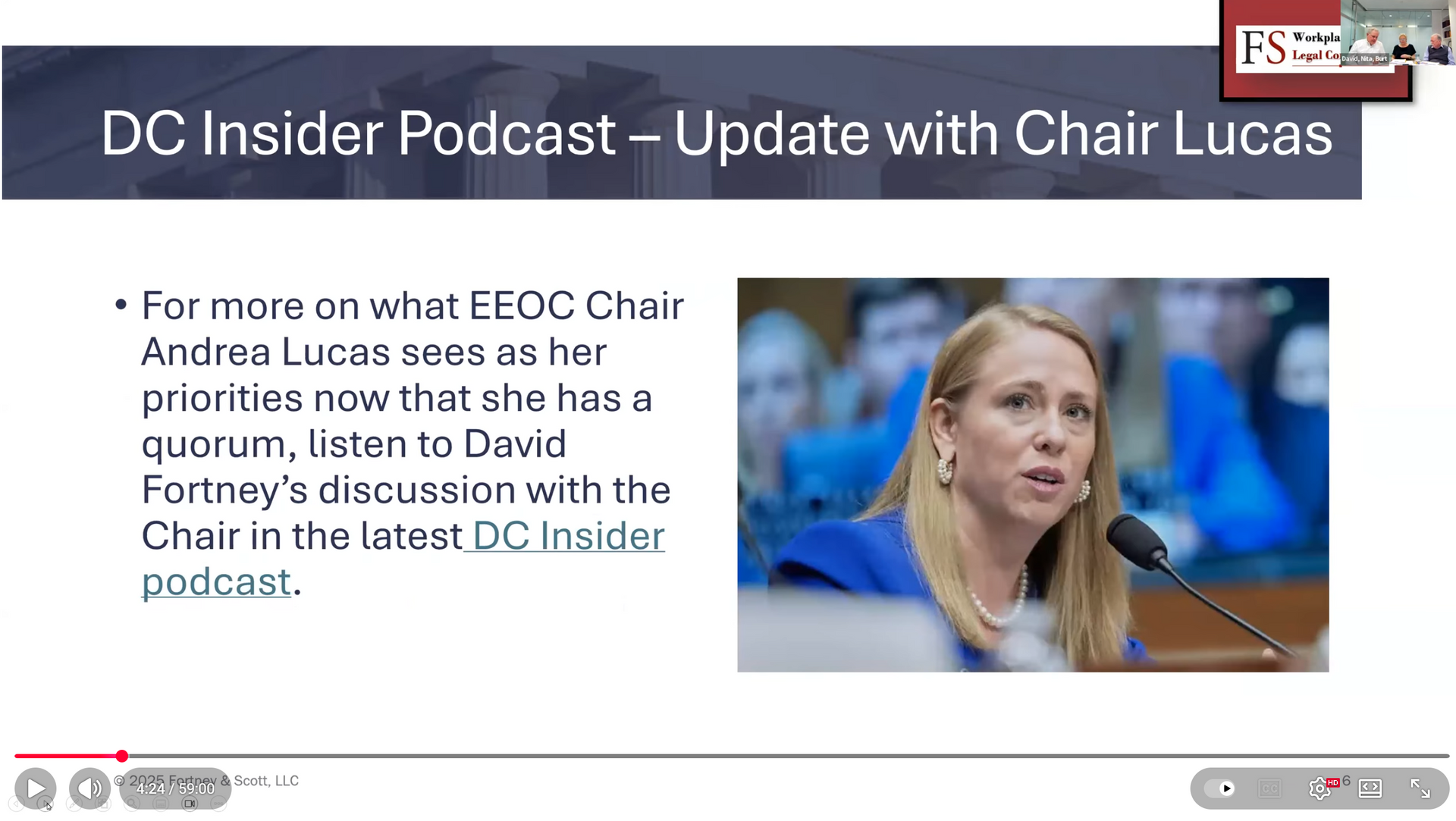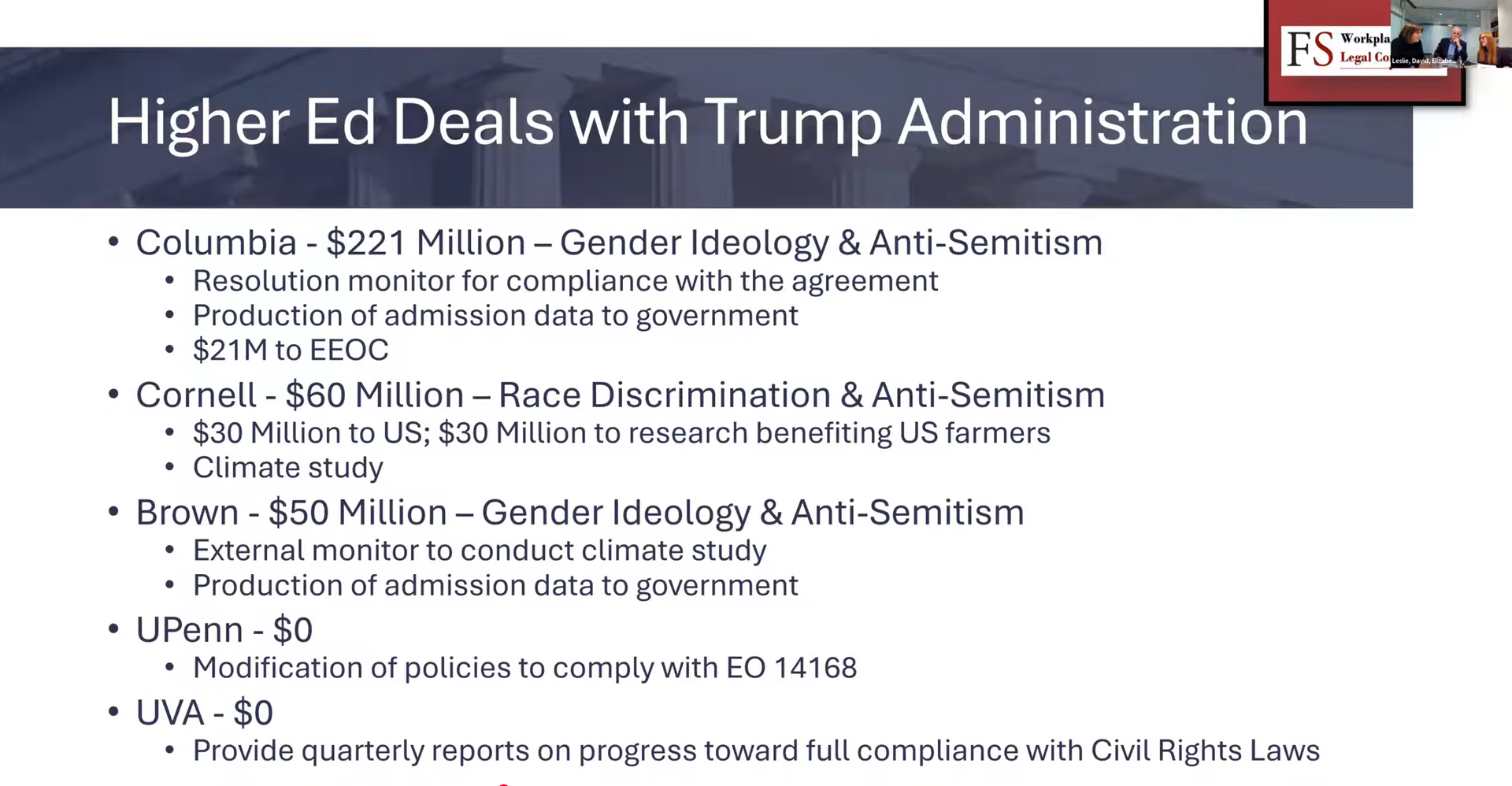Burton J. Fishman
BURTON J. FISHMAN
SENIOR COUNSEL
WASHINGTON, D.C.
Tele: (202) 689-1200 | Fax: (202) 689-1209
bfishman@fortneyscott.com
Mr. Fishman has devoted his practice to developing the “law of the workplace,” an interdisciplinary approach that offers employers counsel and representation on a broad range of matters growing out of government regulation of business.
His experience extends to the full spectrum of employment and labor matters, including employment discrimination, affirmative action (OFCCP), the Americans with Disabilities Act (ADA), and human resources counseling. In recent years, his practice has focused on assisting clients with the changing laws of pay equity, worker classification, and similar workplace matters.
He has represented clients throughout the nation in proceedings before the Equal Employment Opportunity Commission, the U.S Department of Labor, the National Labor Relations Board, and in arbitrations and courts at all levels. He has repeatedly been recognized as a Washington SuperLawyer in the labor and employment field by Washington Law & Politics magazine and is a long-served Member of the College of Labor and Employment Lawyers.
Mr. Fishman served as the Deputy Solicitor for National Operations for the U.S. Department of Labor during the George H. W. Bush administration. During that time, he was a departmental spokesman and Congressional witness on such issues as disability law, wage and hour matters, safety and health, and the ‘glass ceiling’ initiative. His familiarity with the regulatory and legislative process has led to his being retained by entities as diverse as the Society of Human Resource Management, the National Association of Manufacturers, and the American Bar Association to represent them regarding emerging issues and proposed legislation before Congress and the executive agencies.
Mr. Fishman currently serves as the co-chair of the “DC Perspectives Group,” a committee of the Employment Law Alliance. Members of the group are leading employment law practitioners from across the United States. Mr. Fishman has served as co-chair (management) of the Federal Legislative Developments Committee of the American Bar Association’s Labor and Employment Law Section and also as a member of its Equal Employment Opportunity Committee.
A widely-recognized author of over 100 books and articles on workplace issues, his publications include: The ADA: Ten Years After; HR Guide to Employee Management; The HR Question and Answer Book; Workplace Privacy; Thompson’s HR Policies; and Guide to Accommodations of Disability and Religion. Mr. Fishman is an experienced speaker on employment issues, including several presentations at SHRM national meetings, at the American Bar Association Annual Convention, and at similar gatherings throughout the country.
Mr. Fishman is an active supporter of the arts in Washington, serving as the General Counsel of the Washington Performing Arts Society and as a founding member of the Lawyers Committee of the Shakespeare Theatre Company of Washington.
Firm Practices
- Washington DC Expertise
- EEOC Compliance
- Inclusion and Opportunity
- International
- Federal Contractor Compliance
- Pay Equity
- Wage & Hour
- Workplace Investigations
Admitted to Practice
- District of Columbia
- Maryland
- United States Supreme Court
- Various U.S. Courts of Appeals and U.S. District Courts
Education
- Yale University (J.D.)
- Princeton University (Ph.D. with distinction)
- Cambridge University, Cambridge, England (M.A. with honors)
- Occidental College (B.A. magna cum laude)








